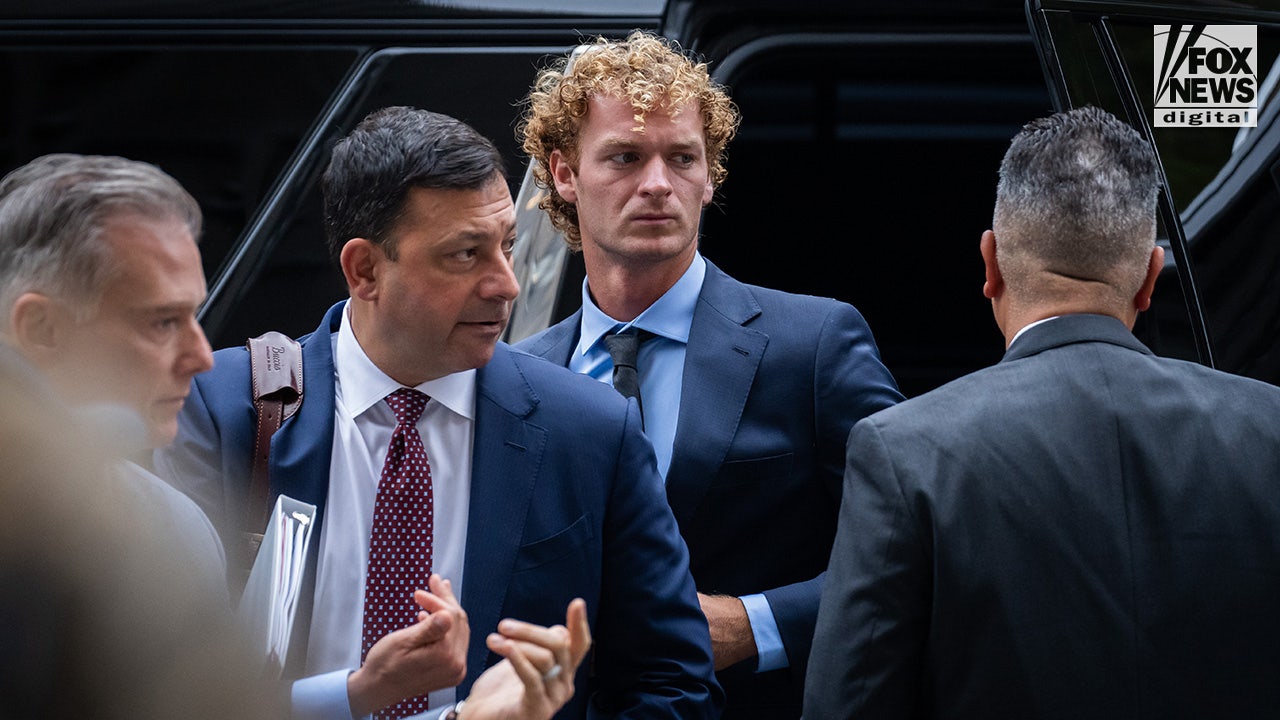It’s 2007, a warm, sunny spring day in Moscow. It’s my first rally, and I’m nervous. I’m 16, silly and shy, falling in love with courageous and loud people around me. I hear my quiet voice join others screaming, “Russia without Putin.” We lock our arms and together push the police out of the street. Russia could be free: It’s a new feeling for me. This is where I see Aleksei Navalny for the first time.
For the next 17 years, I watched my friend Aleksei rise from a Moscow blogger to a global moral and political figure, giving hope and inspiration to people around the world. He helped me and millions of Russians realize that our country doesn’t have to belong to K.G.B. agents and the Kremlin’s henchmen. He gave us something else, too: a vision he called the “beautiful Russia of the future.” This vision is immortal, unlike us humans. President Vladimir Putin may have silenced Aleksei, who died last week. But no matter how hard he tries, Mr. Putin won’t be able to kill Aleksei’s beautiful dream.
In the autumn of 2011, Mr. Putin announced he was going to become president once again, making it clear that he planned to rule Russia for the rest of his life. My feminist friends and I went to an opposition conference in Moscow to figure out our next steps. Young, riotous and radical, we walked like zombies through all the usual boring panels with sad speakers, poetry readings and sleep-inducing talks on human rights and democracy. It wasn’t inspiring because it was neither practical nor attractive. Yes, we all believed that Russia had to be free. But how do we get there?
And then Aleksei spoke about his anticorruption investigations. I can divide my life into before and after that speech. “We take a stick and poke at the bad guys with this stick, and you can do it with me,” he said. For all of us in that packed room, Aleksei made it feel not only that a free Russia was possible but also that we could get there with joy, laughter and camaraderie. No matter how long the path, you have to break it down into steps and take them one at a time.
That day, Pussy Riot was born. I realized that we needed to create our own set of tools to bring about change: direct, attention-grabbing actions that would be easily replicable, giving birth to a movement. Aleksei gave me the push I needed to create the first Pussy Riot music video, which was based on dozens of dangerous guerrilla performances in Moscow. I was too proud to ever admit it to Aleksei in person, but the idea to make the video came from his speech that day.
We made it our goal to become as effective and loud as Aleksei but with a feminist and queer lens. Months later, when my Pussy Riot colleagues and I were on trial for supposedly inciting religious hatred, there — standing in the courtroom among our family members and activists — was Aleksei.
Despite the support, we were sent for two years to a penal colony, a gloomy and hopeless place, where once again my only hope for political change in Russia came from Aleksei. It was 2013, and he was running a remarkably popular campaign to become the mayor of Moscow. In an attempt to silence him, the government sentenced Aleksei to five years in prison. Infuriated, Russians filled the streets, demanding his immediate release. Miraculously, he was released the next day, pending an appeal. I can’t recall any other opposition force in Russia ever having such power.
People say Mr. Putin feared Aleksei. But I think the reason he wanted to get rid of Aleksei was another emotion — a darker, more sinister one. It was envy. People loved Aleksei. With his jokes, irony, superhero-like fearlessness and love for life, he led with charisma. People followed Aleksei because he was the kind of person you wanted to be friends with. People follow Mr. Putin because they fear him, but people followed Aleksei because they loved him. Mr. Putin clearly envied this appeal. No amount of money in the world can buy love; no amount of missiles and tanks can conquer people’s hearts.
As a feminist, I’ve always found it inspiring that Aleksei, unlike many others in Russian politics, chose to surround himself with strong women — Maria Pevchikh, Kira Yarmysh, Lyubov Sobol — and trusted them in the highest positions of power in his camp. And of course, there was his love and respect for his wife, Yulia. It’s a stark contrast with Mr. Putin, known for his cavemanlike sexism, bragging, “I am not a woman, so I don’t have bad days.” Truly confident men don’t need to build their self-esteem at women’s expense.
“How is life in prison?” Aleksei asked me on the phone in 2013. “Not ideal but not too bad,” I answered. “One can survive here.” Aleksei’s team later told me that he recalled our conversation when he decided to go back to Russia after his poisoning in 2020. It was a characteristically brave decision. From his return to his death, it was just three years.
People say hope died with Aleksei. I see it differently: With Aleksei’s passing, a new sense of responsibility has been born. For many of us in Russia, Aleksei was like an older brother or a father figure, someone who was always there to clean up your mess. We lost him so painfully early, so prematurely. Now there’s no one else in the room. We owe it to Aleksei and his dream for a new beautiful Russia to carry on the fight.






